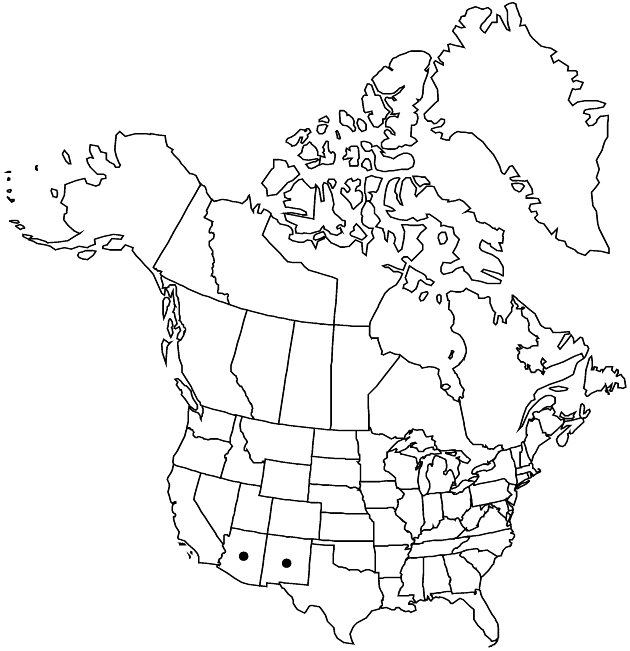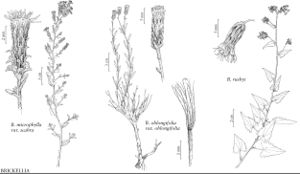Brickellia rusbyi
in A. Gray et al., Syn. Fl. N. Amer. 1(2): 106. 1884.
Perennials, 60–120 cm (bases woody). Stems branched, puberulent, glanddotted. Leaves alternate; petioles 10–50 mm; blades 3-nerved from bases, deltate or rhombic-ovate, 50–100 × 20–50 mm, bases acute to truncate, margins crenate or coarsely dentate, apices long-acuminate, abaxial faces sparsely villous, glanddotted, adaxial faces glabrous or sparsely pubescent, often glanddotted. Heads in paniculiform arrays. Peduncles 4–6 mm, puberulent, sparsely glanddotted. Involucres cylindric to campanulate, 7–10 mm. Phyllaries 22–26 in 4–7 series, 3–5-striate, unequal, margins scarious (apices obtuse to acute); outer ovate to lanceolate (often purple-tinged, glabrous or puberulent), inner linear to oblong (greenish, glabrous). Florets 13–20; corollas yellowish, 5.3–6.5 mm. Cypselae 2–2.5 mm, sericeous; pappi of 26–32 white, barbellate bristles. 2n = 18.
Phenology: Flowering Aug–Oct.
Habitat: Rocky slopes, shaded areas
Elevation: 1500–2500 m
Distribution

Ariz., N.Mex., Mexico
Discussion
Brickellia rusbyi has been considered ill-smelling.
Selected References
None.
Lower Taxa
"fine" is not a number.
